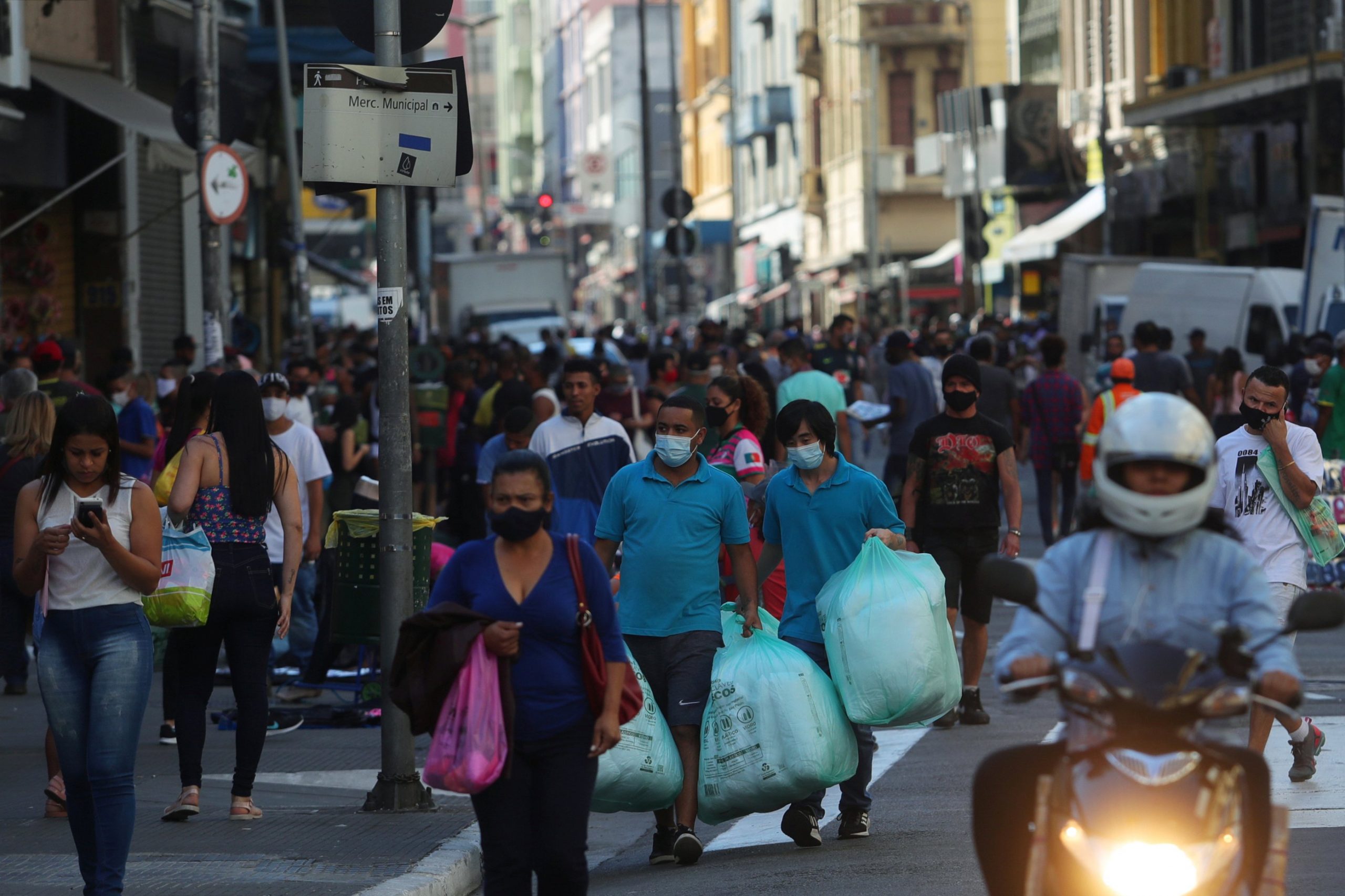Coronavirus infections in Latin America surged past 2 million, with worst-hit Brazil home to nearly half of the cases in the region as the virus accelerates its spread in other continents.
The head of the World Health Organization (WHO) has warned that the virus’s global spread is accelerating after a daily high of 150,000 new cases were reported last week. The new coronavirus has infected nearly 8.8 million people and killed more than 464,000, according to figures compiled by Johns Hopkins University. The true number is thought to be much higher because many cases go untested.
With nearly 50,000 deaths and more than 1 million cases, Brazil is the second worst-affected. In total Latin America and the Caribbean have 2,007,621 confirmed cases. The figures were particularly alarming in Chile, where the death toll nearly doubled to more than 7,000 under a revised tallying method and passed 20,000 in Mexico.
The U.S. remains the country hardest-hit by the pandemic. The outbreak has killed about 120,000 people in the U.S., and nearly a half-million worldwide, according to a count by Johns Hopkins University, though the real numbers are believed to be higher.
U.S. President Donald Trump said Saturday he’s asked his administration to slow down coronavirus testing because robust testing turns up too many cases of COVID-19. Trump told supporters at his campaign rally that the U.S. has tested 25 million people, far more than any other country. The “bad part,” Trump said, is that widespread testing leads to logging more cases of the virus. “When you do testing to that extent, you’re going to find more people, you’re going to find more cases,” Trump said. “So I said to my people, ‘Slow the testing down, please.’ They test and they test.”
The campaign of likely Democratic presidential rival, Joe Biden, said Trump was putting politics ahead of the safety and health of Americans.
Trump opted to hold his first rally in 110 days despite concerns from local health officials that it could lead to the further spread of the virus in Tulsa. Most of those in attendance declined to wear a mask.
Europe, which has endured months of lockdowns to slow the virus but at a crippling economic cost, was set to further ease restrictions. Spain’s national state of emergency has ended after three months of restrictions on movement to rein in its COVID-19 outbreak. As of Sunday, 47 million Spaniards will be able to freely move around the entire country for the first time since the government declared a state of emergency on March 14. The lockdown measures have been rolled back gradually over recent weeks.
Germany reported 687 new cases, its highest one-day toll in a month, after earlier managing the outbreak better than other large European nations. Over 1,000 cases have been found at one meatpacking plant alone.
British Prime Minister Boris Johnson’s government said it will announce next week whether Britain will ease social distancing rules that say people should remain 2 meters (6 1/2 feet) apart. Britain has Europe’s highest and the world’s third-highest official virus death toll at more than 42,500.
In Asia, China and South Korea reported new coronavirus cases Sunday in outbreaks that threatened to set back their recoveries. Chinese authorities reported 25 new confirmed cases – 22 in Beijing and three in neighboring Hebei province. They said 2.3 million people have been tested to contain the outbreak in the capital that has led to the closure of its biggest wholesale food market. In South Korea, authorities reported 48 new cases. Half were in the capital, Seoul. Ten were in the central city of Daejong, suggesting the virus was spreading more widely as lockdown measures are relaxed. The Beijing health commission gave no details of where the latest cases might have originated. The Chinese capital’s biggest wholesale food market was closed June 13 after dozens of people who worked there tested positive.
Last Updated on Jun 21, 2020 2:31 pm










Discussion about this post